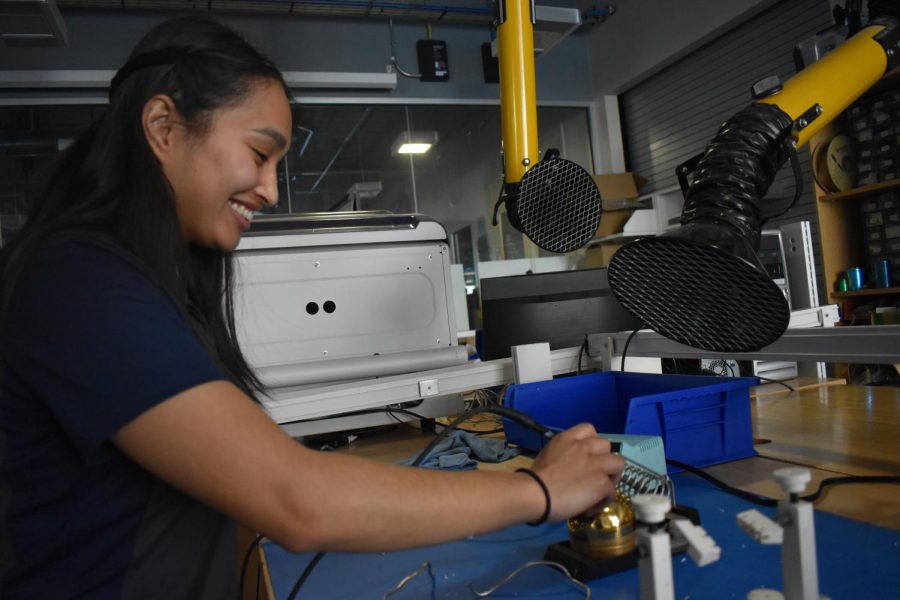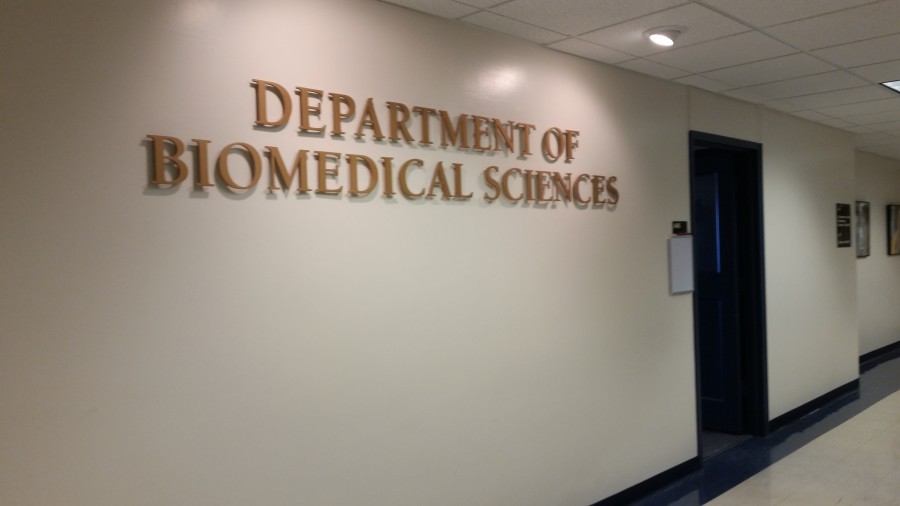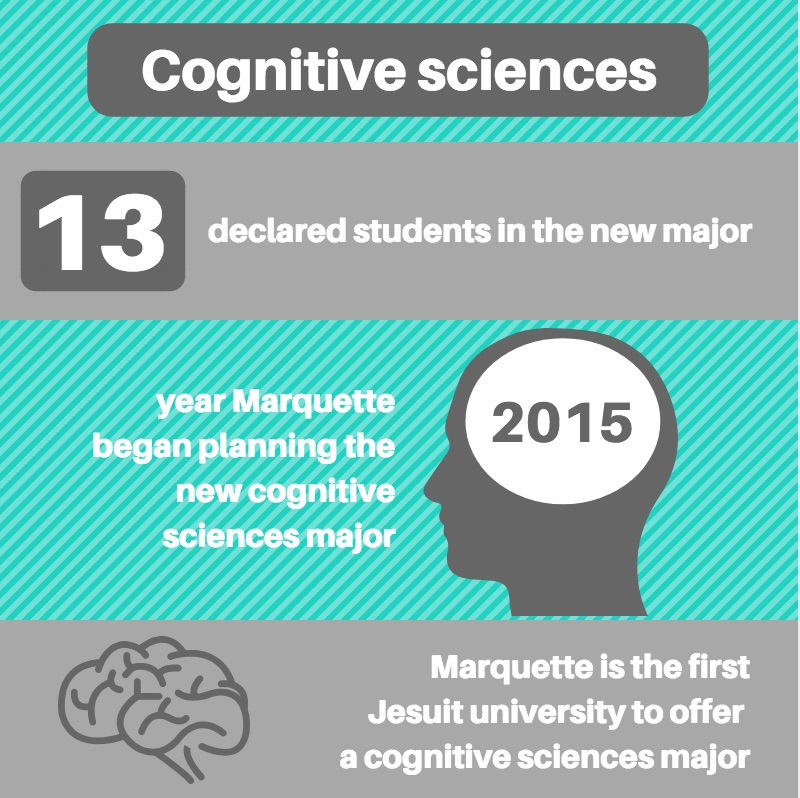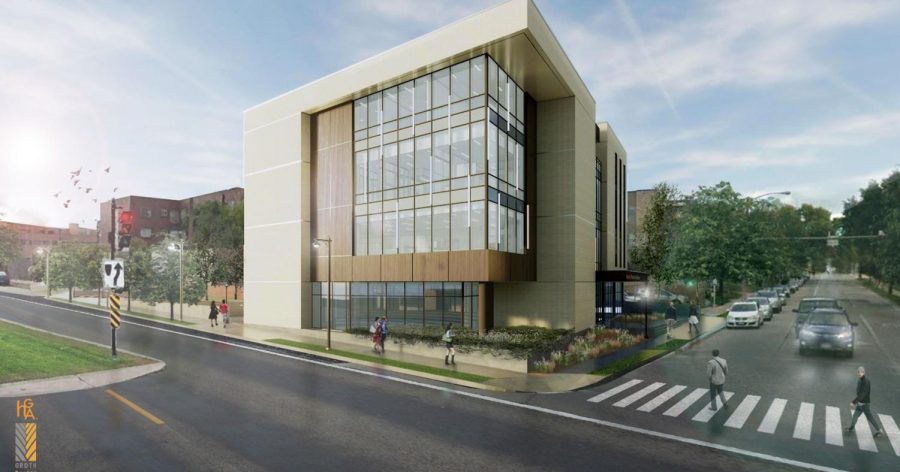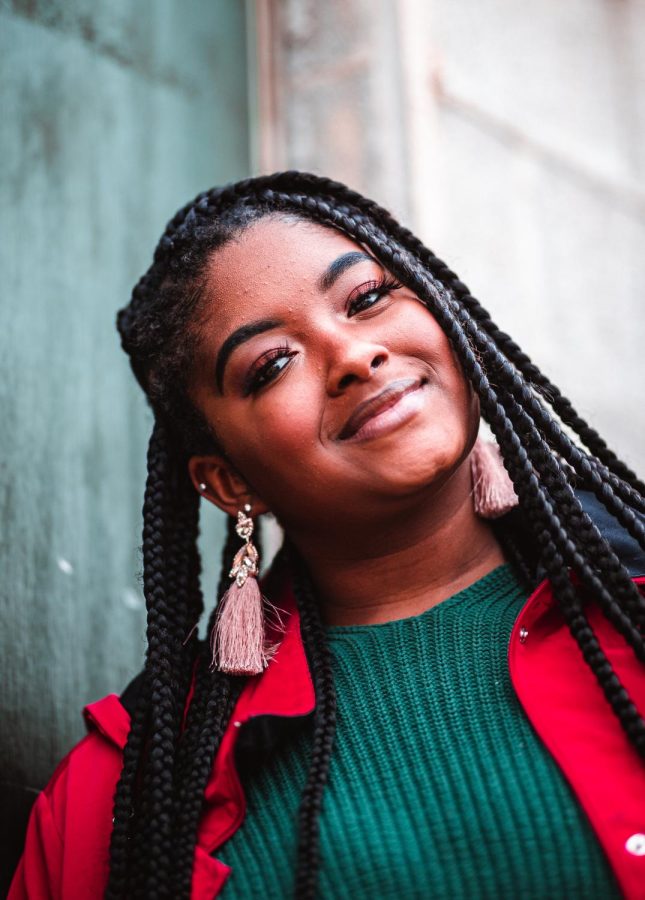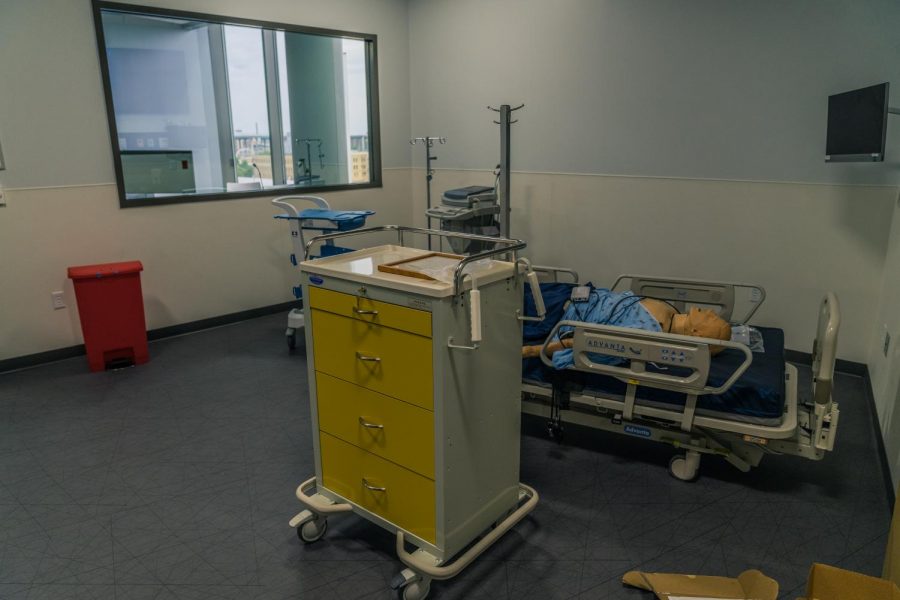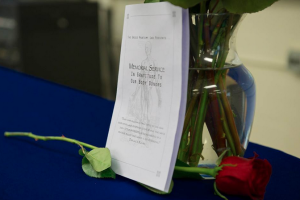
The cadavers in Schroeder Complex’s freezing gross anatomy lab are permanently silent, but they’ll teach students about the human body for years.
More than 200 Marquette students attended the fifth-annual memorial ceremony for the lab’s body donors this Tuesday. The attendees were students in a graduate dental class and undergraduate Gross Anatomy for the Biomedical Sciences class, which both use the body donations. Like in previous years, nearly everyone from each class attended, despite the event being optional.
The memorial, organized by students, is considered a time to be thankful to the donors and reflective of the experience of studying on what is considered hallowed ground.
Professors emphasized the lab as a stop between death and cremation reminding the students of their course’s sacred nature.
“I think it’s really important that the students appreciate the magnitude of the gesture,” said William Cullinan, dean of the College of Health Sciences. “(It is) one of the most magnanimous gestures a person could make to benefit students in a way that really is unparalleled and irreplaceable.”
Attendees filled every chair in the room and people stood lining the back wall as the Rev. Doug Leonhardt gave the opening remarks and led a short reflection.
“We’re here because people said they want to make this world a better place,” Leonhardt told the students. “A better place so that you can have the education to really make people more healthy. … To have a place where people can go because of their diseases and get healed. That’s what these people wanted, (those) who gave their bodies to you to learn from.”
Students in the biomedical sciences program presented readings, including the poem “The Greatest Teacher” by Jeff North, a graduate of the State University of New York, who wrote of a donor’s role as an educator. Daniel Cibich, a junior in the College of Health Sciences and gross anatomy teaching assistant, spearheaded the memorial’s organization this year.
“One of the reasons that inspired a lot of us to come to Marquette was this program,” Cibich said. “(The memorial is) to realize that our experiences wouldn’t be the same (without) those people who we never met (and) will never really know anything about. We’re indebted to them as well.”
The memorial concluded with a student performance of the song “Go Forth,” a closing prayer led by the Rev. Leonhardt and a flower tribute. Students placed textbooks on a table to symbolize how much they learn, in addition to white coats and scrubs to represent the medical professionals they will become. They also place flowers – one for each donor – to remember the body donors and their gift.
Each donor’s family usually has its own memorial following the person’s death. The embalmed body then stays with the university from six months to two years. The donor’s body is fully dissected and studied before it is cremated and returned to the family.
Each year, the program receives 60 to 80 bodies which are studied by undergraduate and graduate students. The experience is considered a rite of passage for first-year medical students, and Cullinan said Marquette’s program for undergraduates is uncommon and may even be the largest in the country.
The course’s undergraduate version is open to biomedical sciences majors. Twice a week each spring semester, nearly 100 students don their scrubs and partake in touching and naming the exposed muscles and probe for elusive nerves. Following the memorial, many students returned to the lab to continue that day’s dissection of the heart. For many students, the ceremony is a chance to think back to the first cut.
“I think it was really eye-opening to be able to look back on it rather than just cut right in, because when you’re in there you don’t see anything personal like hands or the face,” said Margaret Franklin, a junior in the College of Health Sciences. “You only see the muscles and the bones initially. To really realize that this was someone like you, probably someone in the same position as you … it’s really eye-opening.”

